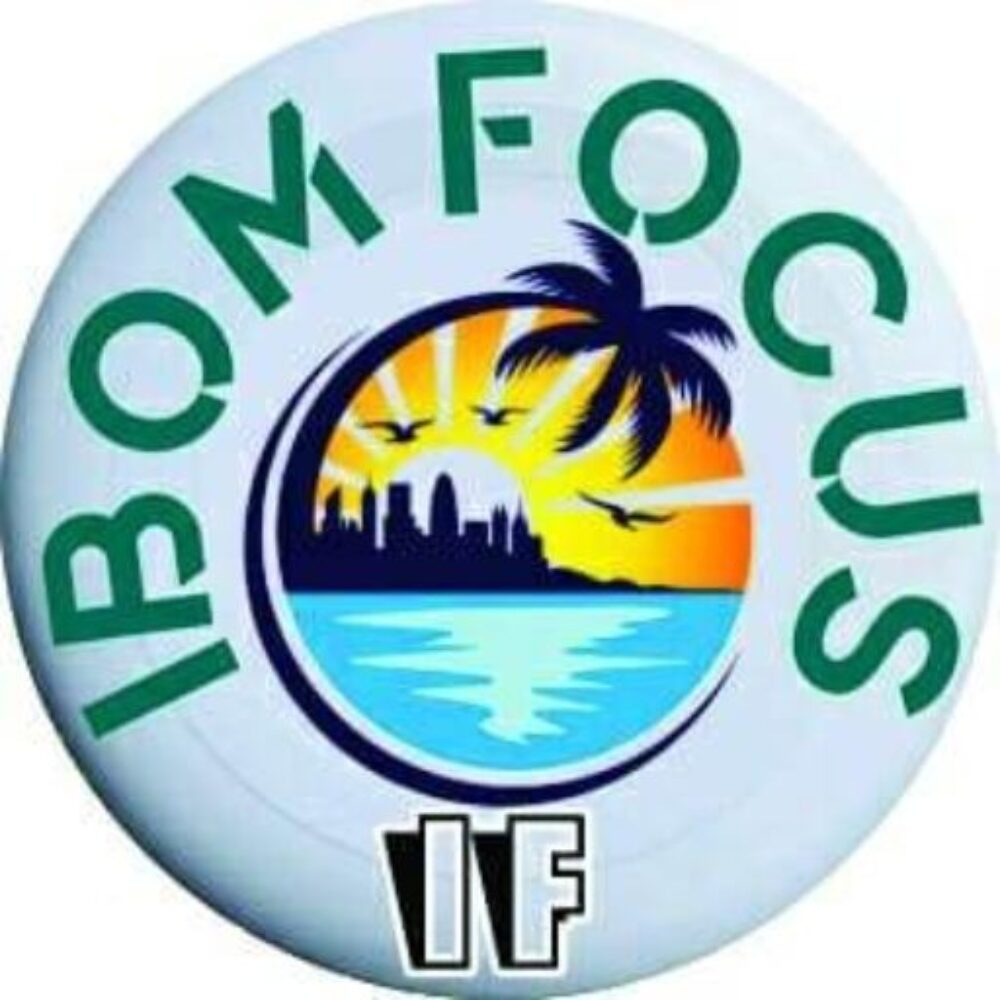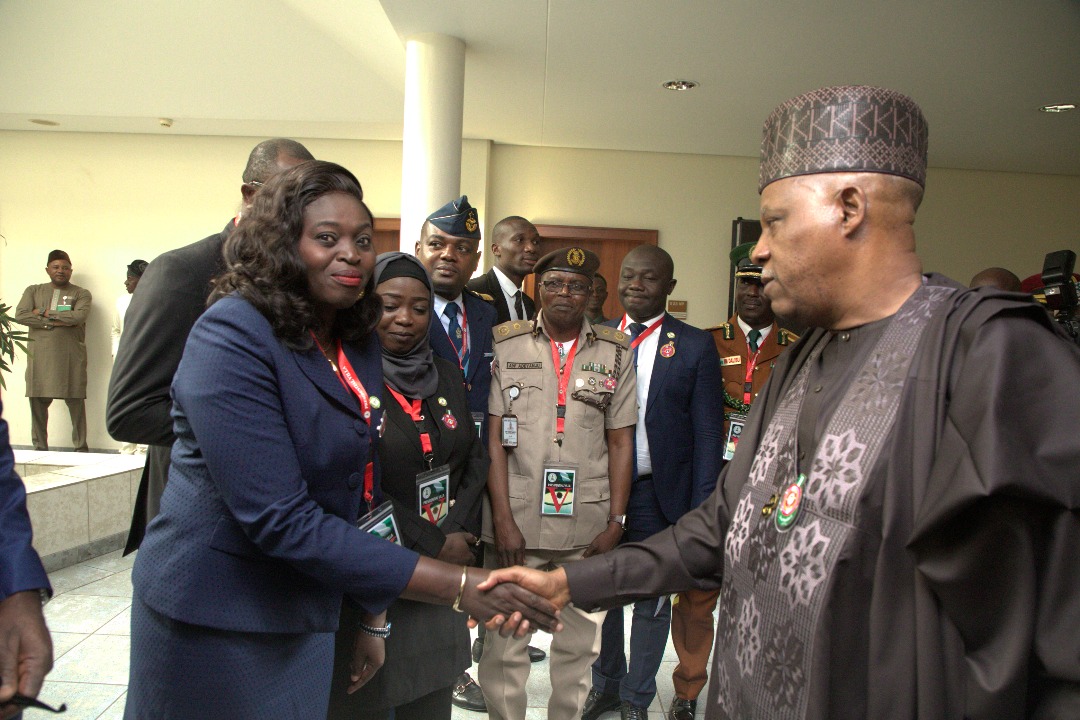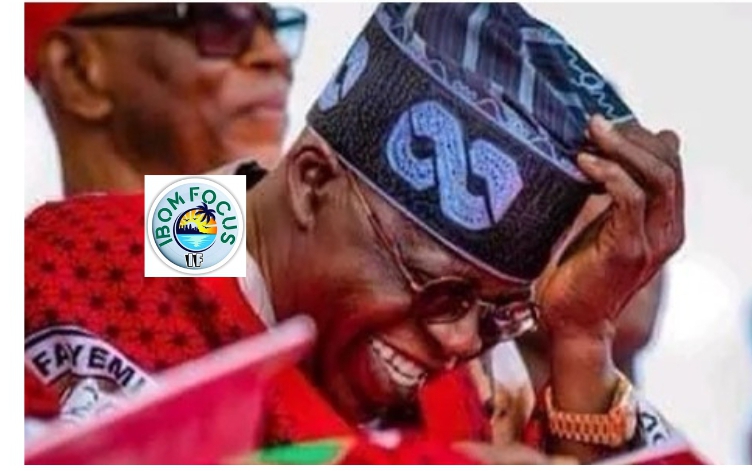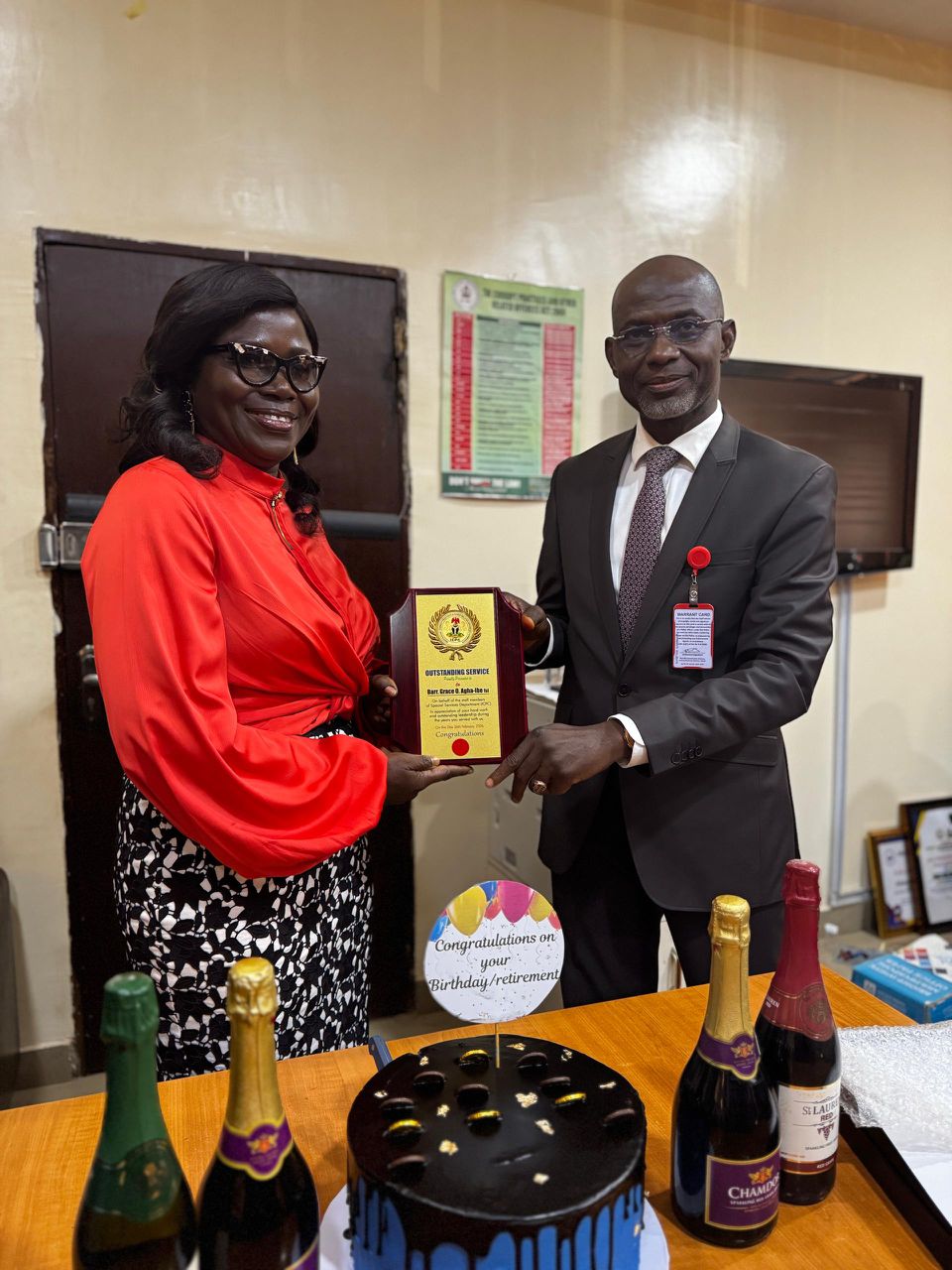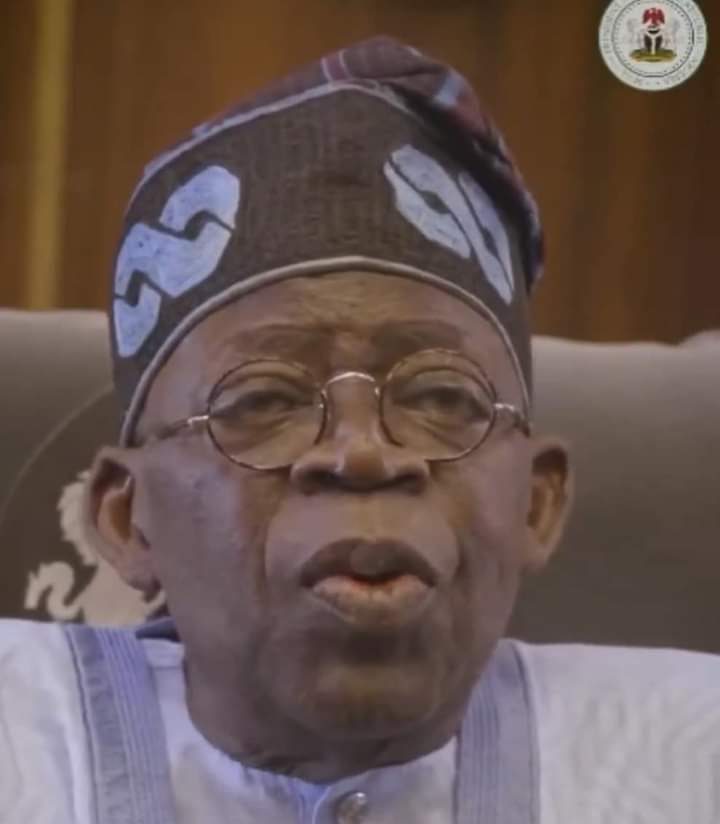ISWAP Moves N18bn Annual Revenue Through Nigeria’s financial system – ECOWAS
ECOWAS Body says ISWAP Moves N18bn Annual Revenue Through Nigeria’s financial system
The Inter-Governmental Action Group against Money Laundering in West Africa, established by the Economic Community of West African States, says Boko Haram splinter group, Islamic State West Africa Province, moved about N18bn ($36m) generated from trading and taxing communities in the Lake Chad region through the Nigerian financial system annually.
The group, set up by ECOWAS Authority of Heads of State and Government in 2000, stated that both Boko Haram and ISWAP had continued to mobilise, move and utilise funds through the nation’s formal financial and commercial system.
It noted that the government lacked adequate insight into Boko Haram and ISWAP international linkages and abuse of the formal financial and commercial sectors.
It said even though the Department of State Services had significant ability to identify and investigate terrorist financing activity, and that it even conducts parallel financial and terrorism investigation, there was little evidence of the effectiveness of such efforts.
The group, known as GIABA, stated these in its 2021 Mutual Evaluation Report, where it also noted that Nigeria lacked an explicit policy to confiscate proceeds of crime or property of equivalent value, including terrorism financing.
It also said the Nigerian government, led by the President, Major General Muhammadu Buhari (retd.), failed to confiscate the assets of terrorists as stipulated in the global anti-money laundering and counter-terrorist financing standards.
Nigeria has been battling Boko Haram insurgency for about 12 years, during which thousands have been killed, including civilians and soldiers; several persons, including schoolchildren and women, were kidnapped with many still in captivity while millions have been displaced.
Meanwhile, the GIABA report was adopted by the global financial intelligence agency, Financial Action Task Force, whose recommendations help authorities to go after the money of criminals dealing in illegal drugs, human trafficking and other crimes.
The report stated, “Boko Haram/ISWAP pose significant TF (Terrorist Financing) risks that are challenging to disrupt, operating in large part outside the formal financial and commercial system in the conflict zone.
“In these areas, Boko Haram and ISWAP are mainly able to “live off the land” through a variety of means, including kidnapping for ransom, extortion and taxation, raiding and controlling commercial activity.
ISWAP Moves N18bn
“As with other forms of illicit financial activity, the pervasive use of cash enables these groups’ funding. A study estimated ISWAP’s revenues, deemed larger than Boko Haram’s, at up to USD$36m annually, much of it from trading activity and taxation in the Lake Chad region.
“According to Nigerian authorities, both groups have also continued to mobilise, move and utilise funds through the formal financial and commercial system as well, accounting for a relatively small portion of TF activity. These groups also engage in international trafficking activities and as sworn adherents to the Islamic State, also have links with other regional and global terrorist networks.
“The authorities believe that any external support from ISIS Core may account for a small portion of ISWAP’s overall revenues. However, trade with broader criminal networks that could extend to regional jihadist organisations appears to generate significant income for both Boko Haram and ISWAP.”
The Financial Action Task Force assessment noted that the Nigerian authorities did not prioritise terrorism financing investigations, as there were only a few terrorist financing prosecutions and convictions, which do not reflect the country’s risk profile in terrorist financing.
Notably, no individual, body or corporation has been convicted in Nigeria for funding terrorism since the insurgency started in 2009.
The Task Force said in the assessment, “Nigeria has a significant but incomplete understanding of its TF (terrorist financing) threats and risks. It lacks adequate insight into Boko/ISWAP’s international linkages and abuse of the formal financial and commercial sector. The authorities do not prioritise TF investigations, as there are only a few TF prosecutions and convictions which do not reflect Nigeria’s TF risk profile.
“The Department of State Services, Nigeria’s lead counter-terrorism agency, has significant ability to identify and investigate TF activity. It conducts parallel financial investigations in conjunction with terrorism investigations. However, there is little evidence of the effectiveness of such efforts.
“The content of TF-related Suspicious Transactions Reports submitted to the NFIU (Nigerian Financial Intelligence Unit) has not been of demonstrable value, appearing to add little to Nigeria’s CFT (Combating the Financing of Terrorism) efforts. The agency maintained that Nigeria did not demonstrate effective legal and operational frameworks for seeking international cooperation, including for the recovery and repatriation of assets.
“Nigeria did not demonstrate that it prioritises and provides constructive information or assistance, including adequate, accurate and current basic and beneficial owner information of legal persons promptly.”
It noted that the nation recently enacted the Mutual Legal Assistance in Criminal Matters Act, 2019 to streamline processes for mutual legal assistance
The financial task force observed that the larger commercial banks and those affiliated with international groups have a good understanding of money laundering and terrorism financing risks.
In contrast, it submitted that the non-bank financial sector such as bureau de change, microfinance banks and insurance intermediaries have a low level of understanding of money laundering and terrorism financing risks, stressing that the level of supervision of registered/licensed forex dealers was not commensurate with the risk of the sector.
“At the same time, thousands of forex dealers operate informally and are entirely unsupervised,’’ the GIABA report affirmed.
Already, the Central Bank of Nigeria in July suspended sale of forex to BDCs due to what it termed illegal activities and corrupt tendencies. The CBN Governor, Godwin Emefiele, said Nigeria was the only country selling foreign exchange to BDCs.
He said the apex bank sustained the practice because of the role the BDCs played in the economy, but that it was disappointing to find that they turned themselves into agents that facilitated graft and corruption in Nigeria, which necessitated their suspension.
About 400 BDC operators and traders were arrested in Kano, Borno, Abuja, Lagos, Sokoto, Adamawa, Kaduna and Zamfara for alleged money laundering and terrorism financing by security agencies in March while 190 others nabbed for alleged link to terrorism reportedly paid N900m in penalties before they were allowed to return to their business.
Months after they were apprehended and despite promises by the Minister of Justice and Attorney General of the Federation, Abubakar Malami, the suspects have not been arraigned or prosecuted.
Gwandu said in May 2021 that the prosecution of the arrested BDCs operators would commence as soon as possible.
Also responding to GIABA assessment, Gwandu told our correspondent, “The Federal Government will access, study and assess the report. The Federal Government will make its position known after critical examination of the content of the report.”
Meanwhile, the Federal Government has sent a delegation to London to engage with the Financial Action Task Force over the negative assessment.
A source told our correspondent that they learnt the delegation, led by the Special Assistant to the President on Justice Sector Reforms, Juliet Ibekaku-Nwagu, was presently holding talks with FATF officials in England.
“The government is worried by the negative assessment and is working to prevent possible sanctions on Nigeria. The Attorney-General has dispatched a team to London to hold talks with the FATF and prevent serious sanctions on Nigeria which may impact our global standing,” the source noted.
Findings showed that the FATF was considering sanctions against Nigeria for failing to comply with the global anti-money laundering and counter-terrorist financing standards.
In 2017, the FATF suspended Nigeria’s membership of the Egmont Group of Financial Intelligence Units due to the lack of legal framework and autonomy for the Nigerian Financial Intelligence Unit, which was then an arm of the Economic and Financial Crimes Commission.
The suspension was lifted in 2018 and Nigeria was readmitted into the Egmont Group, after the country fulfilled the requirements of the organization, a global body of 155 Financial Intelligence Units that facilitates the exchange of financial intelligence, expertise and capability against money laundering, terrorism financing and financial crime.
The mutual evaluation report was released in August and subsequently adopted by the GIABA member states of which Nigeria is a member.
The assessment stated that the EFCC and other enforcement agencies did not prioritise money laundering investigations but focused primarily on money laundering predicate offences.
The West African financial intelligence watchdog in its evaluation of Nigeria further said the use of financial intelligence by law enforcement agencies remains limited due to the low level of feedback to the NFIU, limited scope of entities that file suspicious transaction reports, lack of reporting on cross-border movement of bearer negotiable instruments, inbound cross-border movement of currency disclosures due to the low level of implementation of these systems and the limited scope of institutions from which the NFIU requests additional information to support its analysis.
GIABA said, “Nigeria lacks an explicit policy to confiscate the proceeds and instrumentalities of crime or property of equivalent value. The country did not demonstrate effective seizure and confiscation of all types of proceeds and instrumentalities of crime, including terrorism financing.
“The legal framework is deficient on asset-sharing and formal arrangements for assets sharing with foreign countries for purposes of restitution. The authorities have not effectively utilised the physical cross-border declaration system to seize or confiscate falsely declared or undeclared currency and bearer negotiable instruments.”
While acknowledging steps taken by Nigeria to increase its risk understanding of money laundering and terrorism financing threats, the evaluation stated that the country’s depth and sophistication of its understanding of key money laundering risks, including of corruption and fraud, legal persons, (including free zone enterprises) and politically exposed persons are underdeveloped, considering their complexity, materiality and scope.
The agency also highlighted the lack of coordination among the security agencies, stating that the number of investigations, prosecutions and convictions for money laundering was inconsistent with the key findings.
It said, “Several agencies are designated to investigate and prosecute money laundering cases. However, there is limited or lack of coordination among these agencies. Law enforcement agencies, including the Economic and Financial Crimes Commission, do not prioritise ML (money laundering) investigations and focus primarily on ML predicate offences.
“There are also technical compliance deficiencies related to Recommendation 3. As a result, stand-alone ML offences are not pursued, nor are those related to foreign predicate offences. The number of investigations, prosecutions and convictions for ML is inconsistent with the risk profile of the country. There is no reliable data to determine if the sanctions applied to natural and legal persons for ML are proportionate and dissuasive.”
Meanwhile, the anti-graft agencies, including the Independent Corrupt Practices and Other Related Offences Commission, EFCC and the police did not respond to questions on the GIABA assessment of their activities as their spokespersons kept mum when contacted on Saturday.
Emefiele had said at a Monetary Policy Committee meeting on September 17 in Abuja, “We have unwittingly supported activities of those who illegally buy foreign exchange from this illegal market, carry them in aircraft out of the country, go to buy arms and ammunition and bring them back into the country and commit crimes whether it is Boko Haram, kidnapping or all sorts of nefarious activities. We cannot do that any longer.”
The NFIU however said on September 24 that it had information on the sale of foreign exchange to fund terrorism in the country and that it had launched a manhunt for the perpetrators. It said it had achieved some breakthroughs in recent times through intelligence gathering on the illicit transaction.
Speaking at a three-day workshop organised in Lagos by GIABA, the Associate Director, Intelligence and Investigation Support, NFIU, Mrs Biola Shotunde, said, “Yes, we have intelligence gathering that shows us those patterns and we have worked on that. We have used such intelligence appropriately and that is why we have recorded some successes. Our engagement with other agencies is enormous and proactive. It is an ongoing effort and we are becoming stronger.”
She, however, did not go into details when asked the number of persons arrested in connection with the crime.
Commenting on the assessment, a Security and Risk Management Consultant, Kabir Adamu, said there was a need for the AGF and other stakeholders to look critically at the report and comply with the GIABA provisions and recommendations.
He stated, “On the finances of terrorists and money laundering, the report has spoken out clearly on the gaps that currently exist and some of these gaps are the result of lack of efforts by some of these organisations. So, a coordinated implementation of the recommendations would go a long way towards addressing both money laundering and terrorism financing.
“It is not difficult to see the clarity of the functions of this report; 12 years into our counter-terrorism campaign, the two groups, especially ISWAP that was mentioned in that report, are still active. They are still able to raise funds, recruit (fighters) and buy weapons. I think a closer look at this report and its recommendations would definitely help us in addressing these two major areas – money laundering and terrorism financing.”
Also, a security analyst, Ben Okezie, called for an investigation into how Boko Haram and ISWAP were moving illicit funds through the nation’s financial system. He added that the activities of BDCs operators should be closely scrutinised.
He said, “What should be done is to thoroughly investigate our financial institutions to know how this money was being laundered and what it was being used for. When we allow a parallel financial institution called bureau de change to operate without control or supervision, these are the issues that crop up. They become conduit for terrorist groups. The security agencies should look into this and bring them to book.”
On the poor coordination among the law enforcement agencies pointed out by GIABA, Okezie noted, “We have said this for a long time and I have also written about this in my column. The President should come in and make sure the agencies work in synergy.
“The Federal Bureau of Investigation, Central Intelligence Agency and others coordinate; they exchange intelligence and that is why they could track down Osama bin Laden. Here, the DSS wants to receive public applause, the police, the same thing; the ICPC is not cooperating with the EFCC. These are the problems we are having. Until they collaborate, the situation will not change.”
ISWAP Moves N18bn
